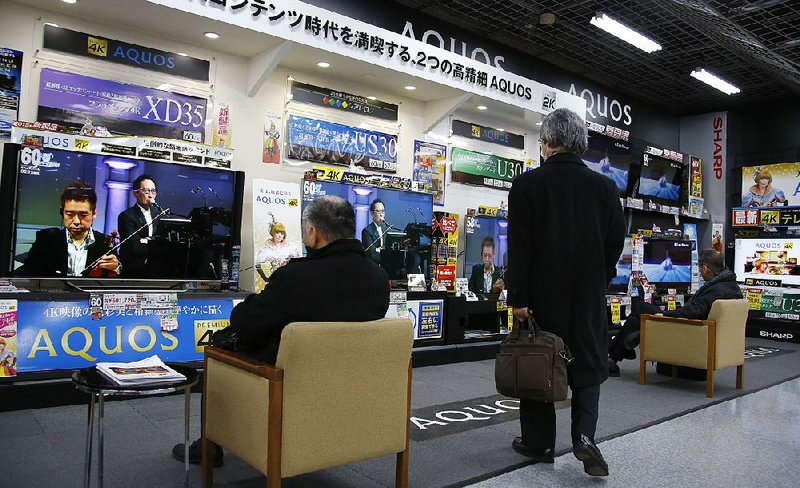TOKYO -- Japanese electronics maker Sharp plans to decide within a month between investment offers from Taiwanese company Hon Hai, also known as Foxconn, or a consortium of Japanese investors.
Sharp Corp. has acknowledged it needs to restructure its once-booming liquid crystal display panel business, now stumbling amid competition from Korean and Chinese rivals.
President Kozo Takahashi said that Sharp has been talking with various parties, and it has narrowed the decision on a new major shareholder to between Hon Hai Precision Industry Co. and Innovation Network Corp. of Japan which groups Japanese finance companies.
He said both were offering attractive proposals, and more consideration was needed for a fair and proper decision. Japanese media reports that cited unnamed sources said Sharp was favoring Hon Hai in its talks.
Hon Hai is a major contractor to Apple Inc., assembling products such as iPhones.
Sharp has been doing business with Hon Hai for years but some in Japan, including within government ranks, are worried about Sharp's LCD and other technology getting siphoned out of the country if Sharp is bought by Hon Hai.
The consortium proposal surfaced because of that concern. Earlier talks for Hon Hai to take a stake in Sharp collapsed in 2012.
Takahashi was questioned on whether he and other executives were going to resign to take responsibility for steering Sharp into large losses, and also why they were apparently unable to come to a quick decision on a bailout partner.
Sharp reported last week a $915 million loss for the first three quarters of the fiscal year that ends March 31. It said it could not yet estimate its net loss for the whole year.
In another sign of troubles at Japan's technology companies, Toshiba Corp. raised its projection for losses for the fiscal year through March to $6 billion. It previously forecast a $4.7 billion annual loss.
Toshiba has problems of its own, including a scandal in which it acknowledged doctoring its books since 2008 to inflate profits in a systematic cover-up. It also faces problems in its nuclear power business after the March 2011 Fukushima nuclear disaster, not only in the costs of dealing with the disaster but obstacles in building new facilities.
SundayMonday Business on 02/07/2016
